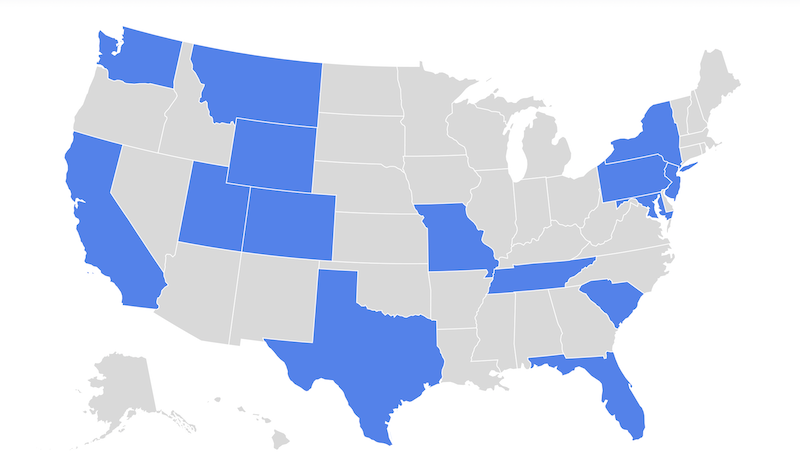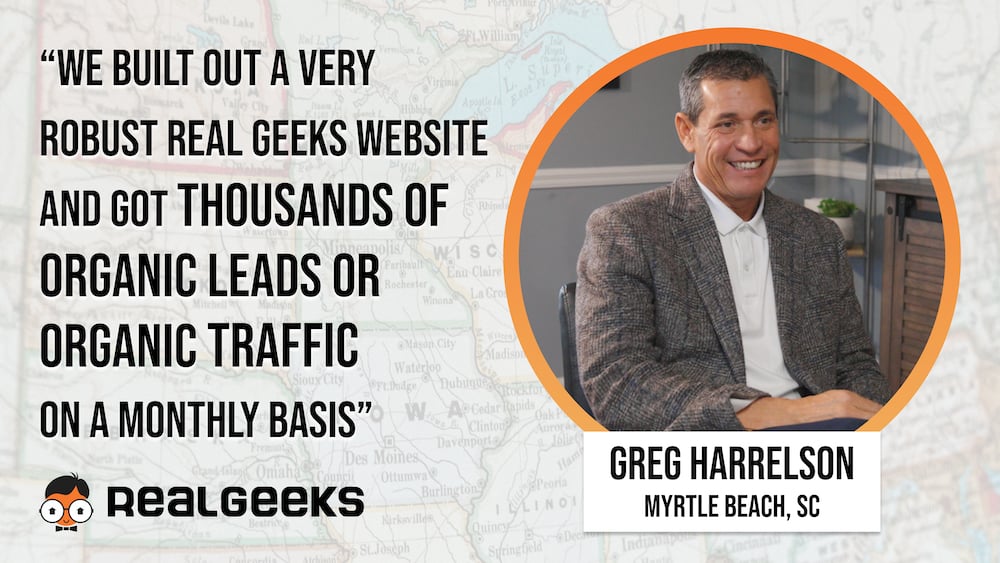This is the third post in a series on how independent real estate agents can improve their search engine rankings.
Over the last year or so, you may have noticed your leads becoming fewer and farther between. Maybe you're not seeing as many visitors to your website as you have in previous years, and your contact/sign up forms aren’t getting much use, either. When traffic seems to dry up, it's sometimes difficult for businesses or even industries to pinpoint the reasons why. Luckily, this isn't the case in the real estate space.
But knowing why a problem exists is only half the battle. The really valuable information is knowing how to fix an issue once you identify it. In addition to the predatory linking practices via widgets covered in the last post, two recent updates to Google's algorithm are also having an effect on how—and whether—real estate sites are displayed in the search engine results pages (SERPs). Let's take a look at one of these updates—Panda—and what you as an independent local real estate broker can do to improve your position, your leads, and your business.
Where Did My Site Go?
If your site suddenly lost its position in the SERPs at some point over the last year and a half, it's possible it was affected by Google's Panda update. Released in February 2010, Panda targets low-quality content , pushing sites that host that content further down in the SERPs, and allowing sites with higher-quality content to rise.
But what does Google consider to be low-quality content? Poor grammar and spelling. Content that seems irrelevant to the site, or is "thin," which basically means it offers little to no value to the reader. Sites with a large number of indexed pages, but low engagement. Those are just a few identifying features of low-quality content.
Because Panda is an update, and is itself updated by Google on a regular basis, it will continue to affect sites with low-quality content until that content is improved. So the first step in potentially regaining your position, and making it easier for potential customers to find you again, is to make some fundamental changes to your Internet real estate—your website.
Improve Your Website
Any website, but especially a business site, should never be static. Frequently updating the information provided keeps the site fresh, and makes it more attractive to Google and the other search engines. You have a couple of options for improving your site:
Redesign Your Site
The days of self-designed business sites built with free tools are long gone. In order to remain competitive, you must design a real estate website that is not only attractive, but is easy for your visitors to navigate. Bear in mind, you also want your site to be search-engine-friendly, and to easily integrate IDX.
You also want the ability to control the number of pages Google and the other search engines can crawl and index. Remember that low-quality indicator of lots of pages but little engagement? You need the ability to block the search engines from indexing certain pages—like your contact or other low quality pages, for example—that either don't contain a lot of information, or contain information that has little relevance to the purpose of your site.
Improve the Quality of Your Site Content
The better the content on your site, the better chance you have of ranking well in the SERPs. Take a close look at the text on your site's pages and your blog, if you have one. Is it informative? Helpful? Well written? Yes, the search engines look at grammar and spelling as indicators of quality.
Improving the quality of your content may also entail reducing it. One of the lessons learned from Panda is more doesn't mean better. It's preferable to have fewer pages with better content than many pages with poor content. If you can consolidate weak pages, thereby building fewer but stronger pages, you may see a rise in SERP position.
Optimize Your Site
Part of creating high-quality content is optimizing it so it's seen by the search engines as relevant. But optimizing goes further than your on-page content, into the site structure itself. Optimizing your site's title tags, description tags, internal linking structure and other factors can help you further increase your rankings.
Just be aware that going overboard with optimization can have a detrimental effect on your rankings. For example, when you write your title tags, follow best practices for character limits, and include just one or two of your primary keywords. Too many words—and too many keywords, in particular—can be a sign of low quality, and can cause you to lose ranking.
My Site is Still Lagging Behind
Perhaps you've already improved your site and optimized your content, but you're still not seeing any improvement in rankings. If that's the case, it's possible you've optimized your content a bit too much.
Meet Google Penguin. This update, released in April, 2012, targets overoptimized sites. The simplest example of this is keyword stuffing, which basically means overusing keywords in your content in an attempt to "game" the search engines into ranking your site higher. That practice has been around for ages, but Google gets smarter every day, and now the algorithm can identify overoptimized content, and rank it accordingly, which means knocking it down in the SERPs.
If your site was affected by Penguin, you may need to overhaul your content to make sure it's not overoptimized. But Penguin isn't just about on-site content.
Overoptimized Backlinks
Every time one site links to another, it creates a backlink—a link that goes from a site back to yours. Ideally, you do want sites to link to you with good anchor text, the words that are actually hyperlinked.
For example, if you're a real estate agent in San Diego, it's fantastic when someone links to your site with anchor text like "real estate in San Diego," or "homes for sale in San Diego." This is called exact match anchor text because it exactly matches an optimal keyword. Also, these words being linked tells the search engines that the site receiving the link has the information indicated by the anchor text—that it's relevant. Relevance can lead to higher rankings.
That said, if your site is somehow receiving thousands of these exact match backlinks, it may have had a detrimental effect on your rankings once Penguin came along. The thinking is, building hundreds or thousands of exact match backlinks is another way to game the search engines.
This is especially true of smaller, lesser known sites. It's plausible for sites such as CNN.com or Facebook.com to have thousands of backlinks. They're large sites with hundreds of thousands of visitors. But when a smaller site, like that of an independent real estate agent, has a few too many backlinks, Google gets a little suspicious, and unleashes the Penguin.
Along these same lines, another danger to your site is a high volume of low-quality links. If your site receives too many backlinks from low-quality sites like article directories, those links aren't as valuable as ones that come from relevant sites—those in the same vertical as yours, or related to yours in some way.
At one time, building links by posting in article directories was pretty standard procedure. As the Internet and search engine algorithms became more sophisticated, that method became less and less effective. Once Google released its Penguin update, it became a dangerous way to build links. It's simply asking for trouble.
Address Overoptimization Issues
If Penguin knocked your site a few positions down in the rankings, fixing the issue may be as simple as adjusting some of the links on your site so they don't include exact match anchor text, and/or reducing the number of links that point to the pages that lost rank.
However, if your site was hit hard, and was completely removed from the index, getting back into Google's good graces is a complex process. You'll still need to address those on-site issues, but if some of the problem is inbound links , you may have a big project on your hands. The final step of getting your site included in the index again is filing a Reconsideration Request with Google . But all the issues must be addressed beforehand, and the filing process itself can be tricky. You may find it's best to seek professional help if your site has suffered this kind of penalty.
Once you've made changes and improvements to your site to counteract Google update effects, the best way to keep any kind of negative effect or penalty from happening again is to ensure your site—both structure and content—is of the utmost quality. Shortcuts will eventually catch up with you, and in the long run, you'll lose more than you gain by taking them.
Build and maintain your site the same way you conduct your business—with quality and integrity—and you'll be on your way to gaining a much better position not only in the SERPs, but in your highly competitive industry.
Please also see the first two posts in this series:
The State of Real Estate SERPs
How You're Helping Zillow and Trulia to Outrank You

Real Geeks is a highly efficient and effective lead generation and conversion solution for cultivating, capturing, and managing leads at any stage of the home buying or selling process.
Drive traffic, capture leads, nurture opportunities, and close more transactions with a robust CRM, fully integrated custom IDX website, and marketing solutions for agents and teams of any size.
Real Geeks is one of the best lead generation and management platforms available, but don't just take our word for it – hear from customers loving their experience with Real Geeks →






/Blog/Thumbnail%20-%20The%20Hyper-Local%20Edge%20Powered%20by%20HelloCondo.png)
/Blog/Thumbnail%20-%20December%20%E2%80%9825%20%20%20Maintenance%20%26%20Quality%20Updates.png)
/Blog/Thumbnail%20-%20Emerging%20Brokers%20Time%20to%20Build%20Your%20Engine.png)